- Home
- Rick Mofina
[Tom Reed and Walt Sydowski 04.0] No Way Back Page 6
[Tom Reed and Walt Sydowski 04.0] No Way Back Read online
Page 6
Gonzales nodded to an officer who set a tape player before the microphones. The tape rolled, its volume boosted. First came deafening popping, then crashing, glass breaking, then chaos, and then August. “Four, oh, six—request—” then his death gasps, then his dispatcher’s frantic futile calls to raise him over radio cross talk. “All units report of a 211 and 406—in the—” Arising from the static hiss between recording beeps came new voices from the street. Distant but clear, beginning with a woman, her cries growing louder as they neared the police car.
“Oh God, please let me go!”
“Shut up! I told you to shut up! Where’s your car?”
“Please. Don’t, just please!”
“Are you sure you got him?”
“Christ, it’s all going to hell!”
“Keep moving, come on!”
The voices faded, drowned out by police alerts, people shouting in the street, then sirens. The tape clicked off. Silence filled the room. Gonzales was now ready for questions from the press.
“Do you have any leads on the whereabouts of Ann Reed?”
“Nothing so far.”
“Any contact or demands from her abductors?”
“Nothing.”
“What are the odds she’ll be found unharmed?”
“We won’t speculate. This is a priority. We’ve got several agencies working together on the case.”
“A task force?”
“Yes.”
“Do you have anything on who the two male suspects are?”
“Nothing concrete so far, it’s only been a few hours.”
“The dead man in the van, Leroy Driscoll, how did you identify him?” asked a young man from an Internet magazine, who looked to be in his teens.
“Fingerprints.”
“His picture has a CDC number. Is it a prison photo?”
“Correct. He did time in Folsom.”
“His offense?”
“He stole cars.”
“Can you confirm who shot Driscoll? Was it August?”
“Officer August never discharged his weapon.”
“This is for Lieutenant Darnell,” a columnist from the Chronicle said. “Sir, what can you tell us about Officer August? How many years of duty?”
Lieutenant Moses Darnell swallowed hard and gathered his thoughts, before his words came out in a deep baritone as if he were giving a eulogy.
“Rod August was sworn in five years ago. He was an outstanding officer who was on his way to becoming an outstanding detective. He was a devoted father to his six-year-old son, who was supposed to meet him at the station today when he finished his shift. He was thirty-two years old.” Darnell swallowed, looked away. A few awkward seconds passed before a reporter from the Associated Press asked if investigators knew how much had been stolen in the heist.
“We’re still doing inventory with management. It will take some time.”
“Given the average jewelry store take is upwards of a hundred and fifty thousand dollars, where would you put this one?”
“Substantial.”
“Seven figures?”
“Substantial.”
“Does the fact grenades were used suggest terrorist involvement?”
“We don’t think this is a terrorist act, but we can’t rule it out yet.”
“What’s the robbery history of the store?”
“This is a first-time hit.”
“How would you rate its security?”
“First-rate. But this was a planned, brazen, violent attack. As we told you, the suspects were disguised. They destroyed all security cameras and took the tapes with them.”
That bit of information on video hit home with Tia Layne. “Officer, are you saying you have no images from any security cameras or amateur video of the suspects?”
“We’re still checking cameras in the area, but nothing’s surfaced so far. We’re asking anyone with any information to contact us.”
Layne immediately collected her bag and headed for the door. She nearly tripped over the feet of some woman who appeared to be out of it. As if grief-stricken by the story. Taking this a little personal there, aren’t you, hon? Layne thought as she brushed by her. Then, passing Cooter at the back of the room amid the fence of tripods and TV cameras, she shot him a barracuda’s grin. He winked back.
Both knew the police tape with the dead officer, his killers, and the hostage would enhance their exclusive footage with dramatic sound.
In the hallway, Layne found a private corner and slid into it. Indifferent to public smoking regs, she lit a cigarette, then pressed her cell phone’s speed dial for Worldwide in New York. They’d love this. A “worldwide exclusive,” that’s what they called their hottest stuff. Layne dragged hard on her Camel. It’s going to be so out-of-this-world compelling. Damn! She exhaled. Be there, Seth. Got to get started promoting this. More important, you got to cut me that freaking check. Layne tapped a glossed fingernail to her teeth. The way that woman was screaming, pleading in the audio. Beautiful.
Absolutely beautiful.
12
Molly Wilson drove from the Hall of Justice to Reed’s home near Golden Gate Park, brushing at the tears drying on her cheeks.
Reed was her best friend at the Star. Her confidant. They sat next to each other, worked with each other, knew the details of each other’s lives. She stopped at a light, hands tightening on the wheel. Get ahold of yourself.
But nothing made sense. In a matter of hours everything had gone nuts. It started when she stomped back into the newsroom searching for Reed so she could rip into him for acting so weird at the scene. Then Acker, the deputy assignment editor, rushed up and told her. Tom’s wife was the hostage.
Molly was dumbstruck, standing there staring at Tom’s empty desk, his computer, the framed photo of him with Ann and Zach, as the news exploded around her and frenzied editors put more people on the story. At the news conference she could barely take a note. She sat there in shock catching her breath when they played that tape of the gunfire, the officer, the killers, then Ann pleading.
A horn blast startled Wilson. The light had turned green just as her cell phone rang. It was Acker, even more frantic since watching the press conference, which TV had carried live.
“Molly, did you get to Reed yet?”
“No.”
“You’ve got to get to him. How far away from his house are you? TV’s going live from the house. Everybody’s there.”
“Acker, listen to me.”
“We called his house, his cell, her stores, relatives. Nothing.”
“Stop phoning him at home. Homicide told me he can’t talk now, the FBI has a trap on his phone in case Ann calls, or they make demands.”
“He’ll talk to you.”
“Acker, his wife’s been kidnapped.”
“And that’s news, Wilson. This is the biggest story in the state right now. It’s ours and you better not drop the ball.”
Another horn blast Wilson pulled over.
“Acker, what does Shepherd say? Let me talk to Bob.”
“He’s in meetings. They want you to get to Tom, Molly.”
“Acker, are you listening to me? He won’t talk to anybody.”
“You’re his friend. Get in his house as his friend, Molly, and get us the edge on this story.”
“Acker, I just told you—”
“Did you see the press conference?”
“What?”
“Hear that tape? It was unbelievable. Did you hear the tape?”
“Yes, I heard the damned tape. I was there. You sent me there.”
“Then you get to him and get us an interview before deadline.”
“Acker—”
He hung up.
Wilson’s bracelets chimed as she thrust her phone into her bag, cursed, her eyes burning as she left six feet of rubber and squealed back into traffic. Emotion rolled over her, forcing her to admit her problem.
Wilson came to the Star from a Texas daily, where she�
�d worked on the police beat after finishing her master’s degree in English literature. In San Francisco, she was assigned to the crime desk with Reed. After years of intense stories together, Reed had become more than a mentor. And there were so many times she wanted to tell him.
Especially during Reed’s dark days when he was drinking and Ann had taken Zach and left him. Wilson reached out to Reed, made her desires clear, but he worked things out with Ann. Wilson was happy for him. She was. But as time and superficial relationships wheeled by, she thought of Tom.
It’s wrong. You’ve got to stop this, she told herself as she came upon the knot of police cars, news trucks, and neighbors in front of Reed’s house. Part of her could barely stand being here, yet part of her didn’t want to be anywhere else. A couple of uniformed officers held the press back on the sidewalk in front of the house.
“Latest word is, Mr. Reed’s not making a statement,” a cop told reporters.
Wilson scanned the area, relieved to spot Sydowski from homicide approaching from down the street. She went to him.
“Hi, Walt.”
“Wilson.”
“Have you been in?”
“In and out a few times.”
“It’s so horrible. Any word on Ann?”
Sydowski eyed Wilson. He was looking for a notebook or tape recorder. Didn’t see one. “No word on her.”
“How’s Tom doing?”
“It’s rough, Molly. Sorry, I gotta get inside.”
“Please, Walt. Can you tell him I’m here, that I want to see him?”
“I don’t think this is the best time.”
“Please.”
“I’ll see what I can do.”
Wilson watched him enter the home through the same door Ann Reed had opened for her so many times in the early days, when she and Tom hosted parties. Or when she’d drop by to visit. So long ago.
Wilson walked behind a TV news van, hugging herself to wrestle down the truth that was gnawing at her.
13
Zach Reed stood unnoticed at the kitchen doorway listening to his mother’s pleas hissing on the tape police were replaying for his father.
“Dad?”
The detectives and FBI agents at the table turned. The tape was switched off and Reed’s red-rimmed eyes met his son’s.
“Yes, son?”
“Maybe they’ll let Mom go when they get far enough away, you think?”
Reed was at a loss. The investigators exchanged glances to see who among them had the right answer.
“It’s a pretty good theory,” Sydowski said.
Zach nodded.
“Zach,” Sydowski said, “the most important thing now is to keep working on positive theories like that one. Think you can do that?”
“Yes.”
Ann’s mother, Doris, came to the doorway. She put her arm around her grandson. Lines of worry creased deep into her face.
“Zachary, some pizza’s just been delivered. I’ll bet you’re hungry.”
“Not really.”
“I think it’s your favorite with extra cheese and there’s cherry soda.”
Reed found the words to say, “Go with Grandma, Zach. Have something to eat.”
“Okay, Dad.”
Outside the Reed home, satellite trucks and a small crowd lined the street. Inside, technicians put in extra phone and fax lines. Uniformed officers and detectives came and went. People worked on laptops, talked on cell phones, drank coffee, consulted files, shared notes, and monitored TV and radio news reports. As they worked, not one cop in the house dared breathe a word of the horrible reality behind cases like these: that the odds of Ann Reed contacting them were astronomical. The odds they would find her were even greater.
Reed’s home phone rang. All activity ceased.
“It’s coming from within the city,” said an FBI agent reading from a computer screen. “It’s a business. Stand by.”
The FBI had put a trap and trace on the Reeds’ home phone to immediately give them the number and a fix on details of any incoming call. Tape recorders connected to the line were rolling. Sound-level needles bounced. An FBI hostage negotiator wearing a headset was ready to listen in. He had a clipboard and pen, prepared to jot instructions. Reed looked at the negotiator, who nodded. Reed grabbed it on the third ring.
“Hello.”
“Is this Tom Reed, of the San Francisco Star?”
“Yes.”
The FBI agent working at the computer screen indicated it was a press call. McDaniel and Sydowksi nodded.
“Tom, it’s J.D. Mark with Bay Action News Radio.”
“I’m sorry. We can’t really say anything right now.”
“But if you could tell the cop killers who took your wife one thing, Tom, what would it be?”
“Please.”
“Tom, just a few words.”
“Release her. I’d say just release her. Please. And, if anyone has any information, just call the police. Please.” Reed hung up, then plunged his face into his hands. It was the thirty-ninth press call since the news conference. When Reed regained his composure, McDaniel passed him a thin file folder on the dead suspect, Leroy Driscoll.
Reed studied the information, glancing at Driscoll’s NCIC number, his CDC data. Served time for stealing cars. Driscoll’s profile, then his mug scowled at him. Chin tilted, stone-cold expression, three small tattoos running like tear tracks under his left eye.
“Tom,” McDaniel said, “is Driscoll in any way familiar to you?”
Reed shook his head.
“And the voices on the dispatcher’s recording, they ring any bells?” Sydowski said. “Want us to play the tape again?”
“No. I keep telling you. Why do you keep pushing this on me? You guys have said this is random. Why do you keep asking me this stuff? Do you really think there is some connection to me? Is there something you’re not telling me?”
“No,” Sydowski said. “It’s procedural. You know that, Tom. We’re checking all possible links.”
“Sounds like you got jack. Sounds like you’re desperate.”
“Take it easy. We’re doing everything we can.”
“What about his prison and parole records? Find out who his friends are? Fingerprint the store, the van? Find out where he lived? Did you fingerprint his gun, trace it, the shell casings? Anything like that? Or you just going to ask me stupid questions?”
“Keep it down, Tom. We’ve got people doing all of those things and more. We’re going to need a little time.”
“Ann doesn’t have any time! It could be too late! You know it. I know it! Hell, they murdered a cop and their getaway man and took my wife. Now you tell me, how much time does she have?”
Reed felt hands on his shoulders pushing him back down into his chair.
“Keep it down, Tom,” McDaniel said. “You got to think of your son.”
“Tom, we’ve got no evidence to indicate anything right now,” Sydowski said as his cell phone sounded. He took the call, listening, then saying, “No, I haven’t told him yet. Just hang on.” Then to Reed. “Molly Wilson and Henry Cain from the Star are out front. They want to see you.”
“Let them in,” Reed said.
“Aren’t they press?” McDaniel was shaking his head. “No, Tom, we’ve already given a press briefing today.”
“I’ll talk to them.”
“Tom, we need to all be on the same page on releasing information.”
“They’re friends. They were there. I’ll talk to them.” When Reed saw Wilson and Cain, something swelled inside so he nearly lost the little control he had as Wilson hugged him tight and Cain shook his hand, squeezing it firmly. Hours ago the three of them were covering the thing. Now, it was as if he were receiving them at Ann’s wake. “Tom, all the photogs send their best, man,” Cain said. Wilson and Cain sat on the sofa. Reed sat in the adjacent chair, circled by detectives.
“You’ve got ten minutes, Ms. Wilson,” McDaniel said. She kept her head down, opening her note
book, flipping past used pages, stopping at a fresh one. She uncapped her pen. Her hand quivered slightly, waiting to write.
“Tom, how—” She stopped. Started again. “How did you learn it was Ann?”
Reed struggled as he recounted everything, answering Wilson’s questions while the FBI counted down the time. Ann’s mother joined Reed, standing next to him, taking his hand.
“We’re praying,” she told Wilson, as Zachary slipped between his dad and his grandmother, telling Wilson that he wanted the bad guys to “please just let my mom go.” Cain’s Nikon flashed repeatedly on them, capturing Reed’s anguish, Zach’s young heartbroken face, Ann’s mother dabbing her eyes.
Ten minutes passed and McDaniel said, “Time’s up.”
“One last thing, Tom.” Wilson stood. “You said you learned it was Ann from the receipt. What did she buy at the jewelry store?”
“I don’t know. A surprise gift for our anniversary.”
“We’re going to hold that information back for now,” McDaniel said.
At the door, Wilson searched Reed’s eyes, embracing him again, whispering to him. “I’m so sorry, Tom. They wanted us to do this.”
“It’s okay,” he said. Reed understood. Maybe better than anyone else.
Hours passed without any contact from Ann or her abductors. Reed went to the window looking out at the street, feeling nothing.
Bob Shepherd, Reed’s editor from the Star, called. “Everyone at the paper sends their prayers, Tom. The publisher’s setting up a reward fund for information, or for anything you might need. If there’s anything I can do, call, no matter what. Call.”
“Thanks, Bob,” was all Reed could manage.
Night came and police told Reed they were following scores of tips from the news conference. Sightings and police stops involving cars and women fitting the descriptions. But nothing concrete. Detectives continued working quietly as Reed gazed at the satellite trucks, unable to count the stories where he had pursued anguished relatives and friends of crime victims.

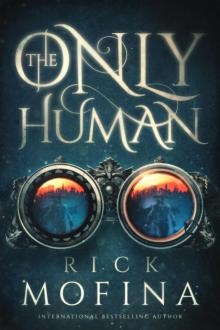 The Only Human
The Only Human Tom Reed Thriller Series
Tom Reed Thriller Series![[Tom Reed and Walt Sydowski 04.0] No Way Back Read online](http://i1.bookreadfree.com/05/tom_reed_and_walt_sydowski_04_0_no_way_back_preview.jpg) [Tom Reed and Walt Sydowski 04.0] No Way Back
[Tom Reed and Walt Sydowski 04.0] No Way Back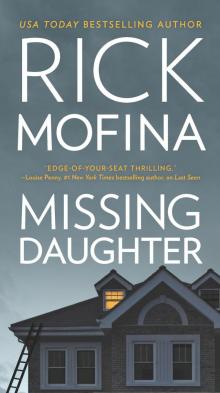 Missing Daughter
Missing Daughter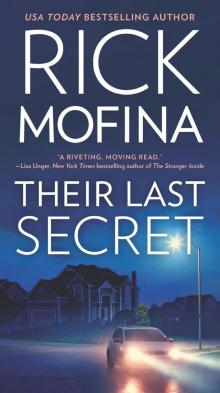 Their Last Secret
Their Last Secret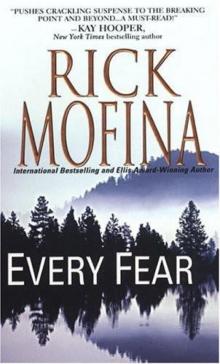 Jason Wade - 02 - Every Fear
Jason Wade - 02 - Every Fear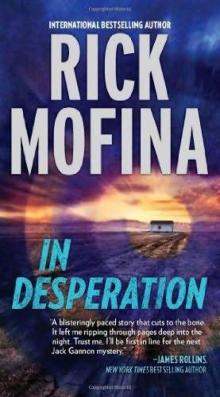 In Desperation
In Desperation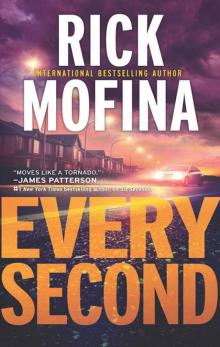 Every Second
Every Second Full Tilt
Full Tilt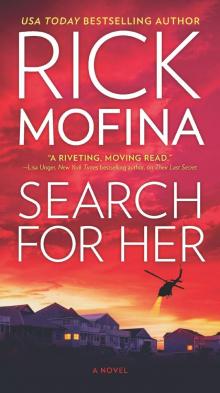 Search for Her
Search for Her The Last Pursuit
The Last Pursuit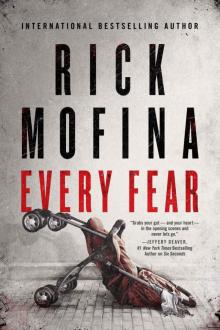 Every Fear
Every Fear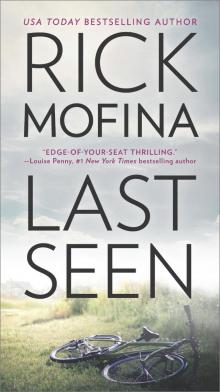 Last Seen
Last Seen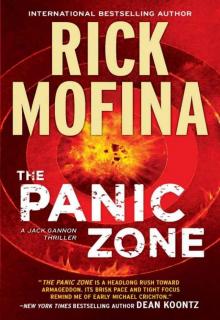 The Panic Zone
The Panic Zone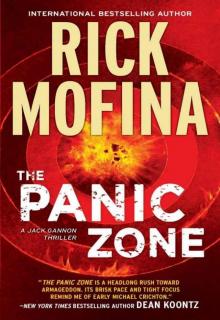 The Panic Zone jg-2
The Panic Zone jg-2 Free Fall
Free Fall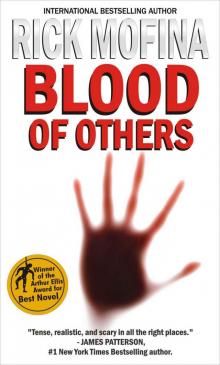 Blood of Others
Blood of Others![[Jason Wade 02.0] Every Fear Read online](http://i1.bookreadfree.com/i1/03/31/jason_wade_02_0_every_fear_preview.jpg) [Jason Wade 02.0] Every Fear
[Jason Wade 02.0] Every Fear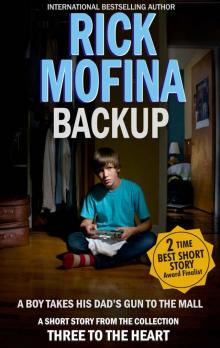 Backup
Backup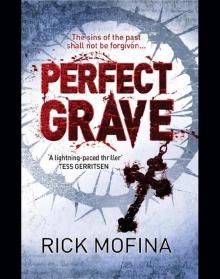 Perfect Grave
Perfect Grave Into the Dark
Into the Dark Whirlwind
Whirlwind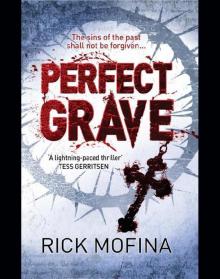 Perfect Grave jw-3
Perfect Grave jw-3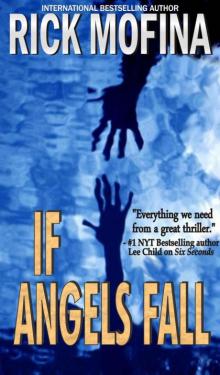 If Angels Fall (tom reed and walt sydowski)
If Angels Fall (tom reed and walt sydowski)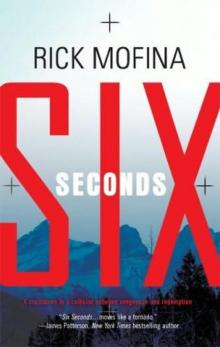 Six Seconds
Six Seconds If Angels Fall
If Angels Fall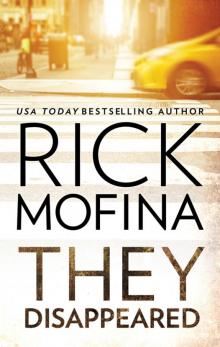 They Disappeared
They Disappeared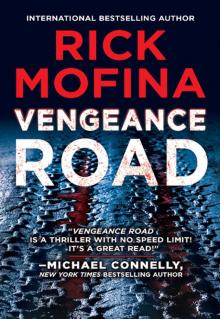 Vengeance Road
Vengeance Road Before Sunrise
Before Sunrise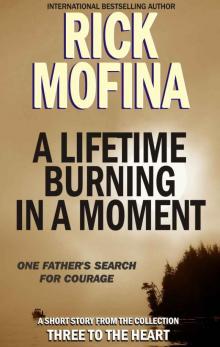 A Lifetime Burning in a Moment
A Lifetime Burning in a Moment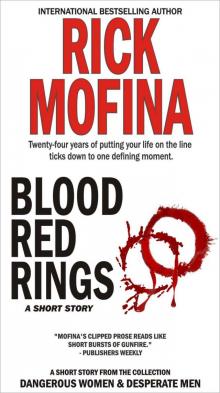 Blood Red Rings (Dangerous Women & Desperate Men)
Blood Red Rings (Dangerous Women & Desperate Men) As Long As We Both Shall Live (Dangerous Women & Desperate Men)
As Long As We Both Shall Live (Dangerous Women & Desperate Men)![[Tom Reed and Walt Sydowski 01.0] If Angels Fall Read online](http://i1.bookreadfree.com/i2/04/12/tom_reed_and_walt_sydowski_01_0_if_angels_fall_preview.jpg) [Tom Reed and Walt Sydowski 01.0] If Angels Fall
[Tom Reed and Walt Sydowski 01.0] If Angels Fall Cold Fear
Cold Fear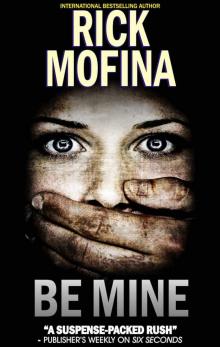 Be Mine
Be Mine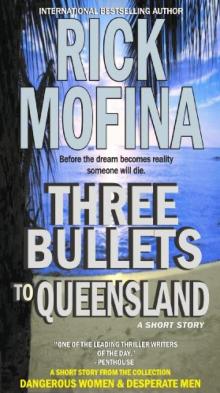 Three Bullets To Queensland
Three Bullets To Queensland